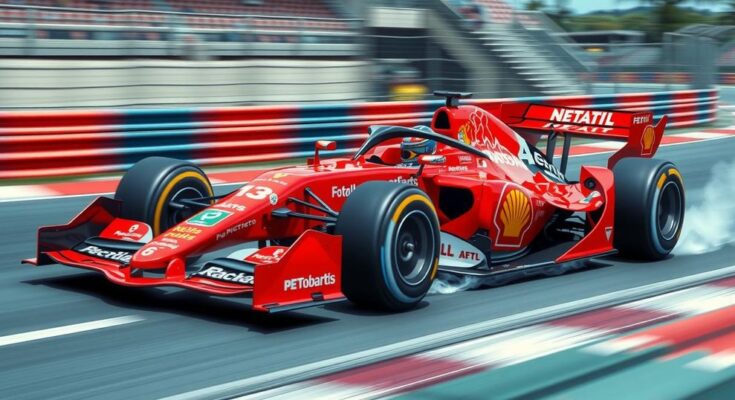Eddie Jordan, a distinguished Formula 1 figure, passed away at 76 in Cape Town after battling cancer. He transitioned from racer to team owner, launching careers for drivers like Michael Schumacher. Jordan’s legacy includes notable victories, including the 1998 Belgian Grand Prix, and his vibrant presence in the sport as a commentator, ensuring he will be remembered as an iconic personality in Formula 1 history.
Eddie Jordan, a prominent figure in Formula 1, has passed away at the age of 76 in Cape Town following a battle with cancer. Initially a racer, Jordan later became the owner of a tenacious F1 team, significantly impacting the careers of many celebrated drivers, including Eddie Irvine and Michael Schumacher. His dynamic personality and contributions shaped the sport significantly, making him a beloved figure in motorsport history.
Jordan began his career in racing in Formula 3 until an unfortunate accident at Mallory Park resulted in a leg injury in 1976. After a short return to racing, he founded his own team, offering opportunities for drivers such as Martin Brundle and Johnny Herbert in Formula 3. He entered Formula 1 in 1991, debuting with a distinct Irish green livery and hiring Andrea de Cesaris and Bertrand Gachot.
One of Jordan’s most notable contributions was granting Michael Schumacher his Formula 1 debut during the 1991 Belgian Grand Prix, following Gachot’s imprisonment. Though Schumacher only raced once for Jordan, his successful career later, achieving seven world championships, was significantly influenced by this initial opportunity.
In 1994, Jordan Grand Prix signed Eddie Irvine and Rubens Barrichello, achieving significant milestones, including Barrichello’s first podium at the Pacific Grand Prix. Despite the tragic events of the San Marino Grand Prix that year, both drivers managed podium finishes in subsequent races, highlighting the team’s continuous rise in the sport.
Jordan’s pinnacle moment came with a spectacular victory at the 1998 Belgian Grand Prix, where both Damon Hill and Ralf Schumacher finished first and second, respectively, in a race characterized by its chaotic conditions. The team’s success continued into 1999, when Heinz-Harald Frentzen secured two podiums early in the season, ultimately leading to the team’s best-ever finishing positions in both drivers’ and constructors’ championships.
Aside from motorsport, Jordan was a passionate musician, often entertaining audiences by playing the drums at events. His team’s fourth and final victory came under remarkable circumstances at the 2003 Brazilian Grand Prix during their 200th race, but performance declined in subsequent years leading to a transition in ownership.
Jordan’s presence in Formula 1 persisted beyond team ownership; he became a well-regarded commentator, known for his vibrant personality. His contributions extended to television, where he engaged new audiences on programs like Top Gear. Even after retiring from broadcast commitments, Jordan continued to influence the sport, exemplified by his support of Adrian Newey’s transition from Red Bull to Aston Martin.
Eddie Jordan leaves behind an unmatched legacy in Formula 1, characterized by his distinctive charm and colorful presence. His contributions to the sport and the many drivers he nurtured will forever be remembered, ensuring that Formula 1 will not encounter a character quite like him again.
Eddie Jordan’s life and career in Formula 1 represent an extraordinary journey, marked by his passion for racing and his pioneering spirit in developing new talent. His contributions to the sport not only helped foster the careers of several famed drivers but also left a lasting impression through his vibrant personality. Despite challenges, his team achieved noteworthy victories and recognition, solidifying his place in Formula 1 history. Jordan’s influence as a team owner and commentator will be deeply missed in the world of motorsport.
Original Source: www.bbc.com




